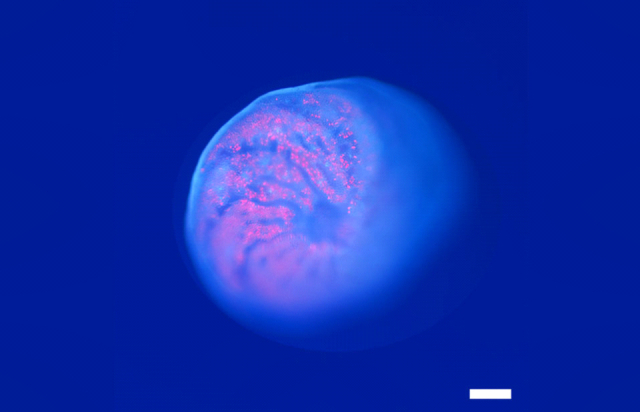Climate change and other anthropogenic stressors are leading to an increasing number of marine heatwaves, which are affecting and changing coastal eco-systems by leading to bleaching events. Especially threatened are holobiont organisms, such as corals and benthic foraminifera, which host endosymbiotic algae inside their cells and are prolific calcium carbonate producers in reefs. Under bleaching those endosymbionts leave their hosts under persistent and repeated stress causing species-specific bleaching responses. Species with different thermal tolerances have been identified to host different symbiont strains. One of these species is the foraminifera Amphistegina lobifera, an algae-protist holobiont model and the focus of this project. Studying this species will help us to better understand bleaching and adaption to changing temperatures. In this case Amphistegina lobifera serves as an easy to culture symbiotic holobiont.
The SYMBIO-AID project will examine the role of symbionts (diatoms and bacteria) in the adaptive potential of the holobiont. The project aims to be the baseline for future symbiosis investigations on these calcifiers. In the laboratory a menthol bleaching approach is used to rear holobionts apo-symbiotic and re-infect them with different strains of diatom symbionts. After this first step, manipulative experiments are performed comparing newly infected organisms to insitu organisms in a laboratory setting.
The results will help to generally better understand processes involved in extending the natural adaptive capacity of holobiont organisms and hopefully will point towards the use of foraminifera for ecosystem design as a form of new habtiat in degraded reefs.
Project Partner |
|---|
|
Dr. Hildegard Westphal (ZMT, Bremen) Dr. Simon Davy (Univ. of Wellington, New Zealand) Dr. Barak Herut (IOLR, Haifa) Dr. Sigal Abramovich (Ben Gurion Univ, Ber Sheva) Dr. Raphael Morard (MARUM, Bremen) Dr. Maren Ziegler (Univ. Giessen, Giessen) Dr. Marleen Stuhr (ZMT) |





